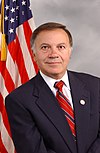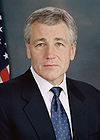
 Mr Wijat's friend Magic Rabbit
Mr Wijat's friend Magic Rabbit  http://www.easterlingentertainment.net
http://www.easterlingentertainment.netINLNews YahooMail HotMail GMail AOLMai
lUSA MAIL YahooMail HotMailGMail AOLMail MyWayMail CNNWorld IsraelVideoNs
INLNsNYTimes WashNs AustStockEx WorldMedia JapanNs AusNs World VideoNs WorldFinance ChinaDaily IndiaNs USADaily BBC EuroNsABCAust
WANs NZNews QldNs MelbAge AdelaideNs TasNews ABCTas DarwinNsUSA MA
Stories Video/Audio Reuters AP AFP The Christian Science Monitor U.S. News & World Report AFP Features Reuters Life! NPR The Advocate Pew Daily Number Today in History Obituaries Corrections Politics LocalNews BBC News
for the best values on: domain names, domain transfers

USA WEEKLY NEWS EASY TO FIND HARD TO LEAVE
INLNews YahooMail HotMail GMail AOLMail USA MAIL
YahooMail HotMailGMail AOLMail MyWayMail CNNWorld IsraelVideoNs INLNs NYTimes WashNs AustStockEx WorldMedia JapanNs AusNs World VideoNs WorldFinance ChinaDaily IndiaNs USADaily BBC EuroNs ABCAust WANs NZNews QldNs MelbAge AdelaideNs TasNews ABCTas DarwinNs USA MAIL
USAWeekendNews.US-USA 2008 Elections Round Up
. International News Limited Domain Pricing Per Year USA Economist Click here for email login for YahooRealEstate.com.au
CBS 11 Dallas CBS4 Denver 13 News, WVEC Hampton Roads 11 News Houston CBS 2 / KCAL 9 Los Angeles WHAS TV11 Louisville CBS4 Miami WCCO Minneapolis WWL-TV, Channel 4 New Orleans CBS 2 New York CBS 3 Philadelphia KTVK 3TV Phoenix KDKA Pittsburgh KGW NewsChannel 8 Portland, Ore. WRAL.com Raleigh CBS 13 / CW 31 Sacramento KENS 5 - TV San Antonio Channel 8 San Diego CBS 5 San Francisco KING5 Seattle KREM.com Spokane/Coeur d'Alene KMOV Channel 4 St. Louis FOX 11 Tucson





Click here to watch great I Player Features from the BBC
including The American Future: A History, by Simon Schama:
What is an American?
While the 2008 presidential campaign is in full swing, Simon Schama travels through America to dig deep into the conflicts of its history to understand what is at stake right now.Simon looks at the bitter conflict over immigration in American history. Who should be allowed to enter America and call themselves an American has always been one of the nation's most divisive issues, and it continues to be so at this election. He traces the roots of this conflict to the founding of America.
The early settlers were themselves immigrants, but they saw America as fundamentally a white and Protestant nation. Simon looks at the key events that challenged this view: the annexation of parts of Mexico in 1848 that made 100,000 non-whites American citizens, the immigration and subsequent expulsion of the Chinese in the late 19th century, and the massive immigration from Eastern Europe during the industrialisation of the 1920s. Each time there have been those who have insisted America must stay white if it's to stay true to itself, and each time they have been defeated by the sheer force of history.
John F Kennedy defined America as a Nation of Immigrants in 1964 and Simon argues that the candidacy of Barack Obama represents the final triumph of the vision of America as a multi-ethnic nation
Click Here For Your Up To Date World Live Sports Scores
.com* $9.99 | .net* $9.99 | .org* $9.99 | .info* $9.99 | .us* $9.99 | .biz* $9.99 | .ws* $9.75 | .name* $7.95
Save even more on multi-year registrations!
Visit International News Limited for the best values on: domain names, domain transfers and more!
Click Here For Your Up To Date World Live Sports Scores
INLNews YahooMail HotMail GMail AOLMailUSA MAILYahooMail HotMailGMail AOLMail MyWayMail CNNWorld IsraelVideoNs INLNsNYTimes WashNs AustStockEx WorldMedia JapanNs AusNs World VideoNs WorldFinance ChinaDaily IndiaNs USADaily BBC EuroNsABCAust WANs NZNews QldNs MelbAge AdelaideNs TasNews ABCTas DarwinNsUSA MAIL
also see www.YahooUSANews.com and www.YahooUKNews.com
for world-USA-UK historical Video News for September and October 2008
International News Limited Domain Pricing Per Year
.com* $9.99 | .net* $9.99 | .org* $9.99 | .info* $9.99 | .us* $9.99 | .biz* $9.99 | .ws* $9.75 | .name* $7.95
Save even more on multi-year registrations!
Visit International News Limited for the best values on: domain names, domain transfers and more!
FULL COVERAGE News Iraq Zimbabe Myanmar Radovan KaradzicChina » All Full Coverage
ABC News Video FOX News Video FOXBusiness Video CNN Video AP Video BBC News Video Reuters Video AFP Video CNET Video
CNBC Video Australia 7 News Video Rocky Mountain News Elections Video CBC.ca Video NPR Audio Kevin Sites in the Hot Zone Video
Richard Bangs Adventures Video Charlie Rose Video Expanded Books Video Assignment Earth Video ROOFTOPCOMEDY.com Video
Guinness World Records Video weather.com Video AccuWeather Video You Witness News User Video
NPR Audio BY CATEGORY Top Stories Politics World Business Sports Technology Health & Science Arts U.S.
VIEW LOCAL VIDEO KVUE-TV Austin WJZ 13 Baltimore WBZ Boston WCNC Charlotte CBS 2 Chicago
Video by Category
U.S. Business World Entertainment Sports Tech Politics Science Health Environment Weather Opinion Odd
Video by Topic Campaign '08 Wall Street Iraq Gas Prices Mideast Conflict Climate Change
More INL News Video !Finance Sports
USA WEEKLY NEWS EASY TO FIND HARD TO LEAVE






Visit International News Limited for the best values on:
domain names-domain transfers
STUNTMAN: Jon Templeton will act as Hugh Jackman's stunt double in the film Australia. Picture: MEGAN BRAYLEY Hi there....welcome to YahooRealEstate.com.au
Hi there....welcome to YahooRealEstate.com.au
 Yahoo!!!!!!!Click here for the cheapest real estate advertising on the internet
Yahoo!!!!!!!Click here for the cheapest real estate advertising on the internet
 Click on my photo for Your Private Hush Mail remember..Mums the Word...
Click on my photo for Your Private Hush Mail remember..Mums the Word...
New York International Theater, Film & Arts FestivalNew York International Theater, Film & Arts FestivalNew York International Theater, Film & Arts Festival
www.NYITfest.com
World Healines from:
Video-Photo-UK--World-Environment-Health-Sci/Tech-IT-Music-Sport-Football
BBC Yahoo Sky The Times Daily Mirror The Guardian The Telegraph Google
BBC UK Politics Reuters The Independent ITN Channel 4 Daily Mail
Topix.net Daily Mirror Manchester Evening News Financial Times CWales
GazetteLive BBC England BBC Scotland BBC Wales BBC Recent Stories
Scotsman BBC N Ireland
USA WEEKLY NEWS EASY TO FIND HARD TO LEAVE
New York International Theater, Film & Arts Festival
www.NYITfest.com
AB-CNN-AP-BBC-Reuters-CBC.ca-60Minutes-Australia-CharlieRose-Peopleon the Web-Underground-YouWitnessNews-TalkToPower-Environment-KevinSites-Adventures-
ExpandedBooks-Weater.com-AccuWeather-VideoNews
More Live Leak vidoes at INLNews.com Click here
http://inlnews.com/Live_Leake_Great_Videos.html
Republicans
 McCain
McCain
 Huckabee
HuckabeeBy ANN SANNER, Associated Press Writer
WASHINGTON - Voters came out in record numbers in about half the states that have voted in presidential primaries so far, according to an analysis Wednesday. Turnout among Republicans on Super Tuesday toppled a 20-year record in Alabama, according to the report issued by American University's Center for the Study of the American Electorate. More than 16 percent of those eligible voted in the GOP race, compared with about 7 percent in 1988. The report's findings were based on unofficial results from the primaries held through Tuesday. Caucuses and California primary results were excluded. Alabama had 58,000 new voters sign up in the three months leading up to Tuesday's race, just one sign of newfound interest in a primary that used to be held in June and had little or no significance. nIn Georgia, Democrats came out in droves to support Barack Obama, breaking a more than 30-year-old turnout record. More than 16 percent of eligible voters showed up at the polls Tuesday, compared with less than 15 percent in 1976. "We are likely to see more records broken until the contests are decided, which in the Democratic Party's case, at least may last until their convention," said Curtis Gans, the center's director who performed the analysis. About 14 million people voted in the Democratic primaries this year compared with the slightly more than 10 million who voted in GOP primaries, according to the analysis.Twenty states have held Democratic and Republican primaries so far. Here are some of the report's findings:Democratic primaries in 12 states set records. They are Alabama, Arizona, Connecticut, Georgia, Illinois, Massachusetts, Missouri, New Hampshire, New Jersey, New York, South Carolina and Utah.Republican primaries in 11 states saw their highest percentages of voter turnout ever. They are Alabama, Arkansas, Connecticut, Delaware, Florida, Georgia, Missouri, New Jersey, Oklahoma, Tennessee and Utah.Combining party turnouts, the highest percentage of eligible voters showing up this year came in New Hampshire — 52 percent.Among the record-setting states, New York primaries had the lowest percentage of people voting with just more than 18 percent of all those eligible casting votes.
McCain takes command of GOP race as Obama and Clinton trade wins.
Yahoo Video on the the 2008 USA ElectionsUnited States Democratic presidential candidates, 2008
Active candidates with national campaigns
- 1 Active candidates with national campaigns
- 2 Professional qualifications of national candidates
- 3 Other candidates
- 4 Withdrawn from seeking nomination
- 5 Declined to seek nomination
- 6 Delegate race
- 7 See also
- 8 References
- 9 External links

Senator Hillary Rodham Clinton
(Campaign site)
Hillary Rodham Clinton, born October 26, 1947, in Illinois, U.S. Senator from New York and former First Lady of the United States. Clinton announced the formation of her exploratory committee on January 20, 2007, with a post on her website.[1] She has delivered several speeches intended to reach out to moderates, according to analysts. She has also been holding fundraising meetings, including meeting with women from Massachusetts, a key constituency of potential rival and 2004 nominee John Kerry; however, these activities are consistent with the lead up to a campaign for re-election to her Senate seat in 2006. If elected, Clinton would be the first female president. Clinton announced on January 20, 2007, that she will run in 2008 (the same day she announced the formation of an exploratory committee). She has filed the official paperwork for an exploratory committee.[2] She placed first in the New Hampshire primary on January 8, 2008 and placed first in the Nevada caucuses on January 19 but fell one delegate short of Barack Obama. She placed first in the Florida primary on January 29, 2008, but was awarded no delegates, due to a prior ruling of the party unseating the state representatives because of the early date.

Former Senator Mike Gravel
(Campaign site)
- See also: Political positions of Mike Gravel
Mike Gravel, born May 13, 1930, in Springfield, Massachusetts. U.S. Senator from Alaska from 1969 to 1981 and an active candidate for Vice President in 1972. He is most known for playing a key role in ending the draft during the Vietnam War through the release of the Pentagon Papers and through staging a one-man filibuster for 5 months. He is also notable for advocating a guaranteed annual income, which he termed a "citizen's wage," of US$5,000 per person, regardless of whether the person worked. On April 13, 2006, Gravel announced his candidacy for the Democratic nomination. His policy announcements to date include support for direct democracy, FairTax, and withdrawal from Iraq. Mike Gravel filed with the FEC in April according to various news sources.[3][4] The FEC's site has listed his reports since July.[5] MSNBC incorrectly reported that Gravel had dropped out of the race on January 3, 2008 after a poor performance in the Iowa caucuses. His website confirmed that he is still in the race.
- Alaska State Representative: 1962–1966 (Speaker: 1965–1966)
- U.S. Senator from Alaska: 1969–1981

Senator Barack Obama
(Campaign site)
United States Republican presidential candidates, 2008
- 1 Delegate race count
- 2 Candidates with national campaigns
- 3 Other candidates
- 4 Withdrawn from seeking nomination
- 5 Declined to seek nomination
- 6 See also
- 7 References
- 8 External links

Senator John McCain
- See also: Political positions of John McCain
John McCain, born August 29, 1936, in the U.S.-controlled Panama Canal Zone, Senator from Arizona. Often characterized as a Republican maverick in the Senate, he is well-known. In 2000, he failed in his attempt against George W. Bush for the Republican nomination: McCain continued his ultimately unsuccessful campaign long after the other Republican candidates had united behind Bush.
McCain's bipartisan compromise on judicial nominations and his strong support of campaign finance reform have drawn the ire of many groups,[16] many of which have vowed to work against any McCain campaigns for the Republican nomination in 2008. He has a strong stance on many issues and economically falls more along the lines of traditional "fiscal conservatism." These factors, along with his commitment to the War on Terror (including Iraq) have boosted his popularity amongst conservatives since 2004, when he emphasized these traits while stumping for Republican candidates.
On November 15, 2006, McCain announced he would form an exploratory committee. On the Late Show with David Letterman on February 28, 2007, he announced he would seek the GOP presidential nomination. He made a formal announcement on April 25, 2007.

Mitt Romney, former Governor of Massachusetts
- See also: Political positions of Mitt Romney
Mitt Romney, born March 12, 1947, in Michigan, is former Governor of Massachusetts; he did not seek a second term in November 2006. Romney is running on his record as co-founder of Bain Capital, the CEO of the 2002 Winter Olympics, and his record as Governor of Massachusetts. Although he ran as a moderate for the office of Governor of Massachusetts and during his failed Senate bid in 1994, he supported more conservative positions as his term progressed. Romney formed a presidential exploratory committee on January 3, 2007, the day he left the governor's office.[24]
Romney officially announced his candidacy on February 13 at the Henry Ford Museum in Dearborn, Michigan.[25][26]
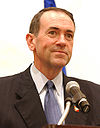
Mike Huckabee, former Governor of Arkansas
- See also: Political positions of Mike Huckabee
Mike Huckabee, born August 24, 1955, in Hope, Arkansas, served as Governor of Arkansas for over 10 years. He announced that he would be running in 2008 on NBC's Meet the Press television show with Tim Russert.[3] He has made three appearances on Comedy Central's The Colbert Report, The Today Show on NBC and many appearances on CNN, Fox News Channel, and MSNBC regarding the 2008 presidential election. He won the January 3, 2008 Iowa caucus.[4]
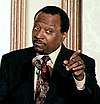
Alan Keyes, former Ambassador to the Economic and Social Council of the United Nations
Alan Keyes, born August 7, 1950, in New York City, filed a Statement of Candidacy with the Federal Elections Commission on September 14, 2007.[5] He served as Ambassador to the Economic and Social Council of the United Nations under President Ronald Reagan, and served as Assistant Secretary of State for International Organization Affairs from 1985 to 1987. He is currently on the ballot in 25 states.[6] He participated in Republican debates on September 17[7] and December 12.[8] Keyes supports an amendment against gay marraige.[9] Keyes stated he would not have gone to war in Iraq[10], but also said that the war was justified[11] and defended President Bush's decision in one of his 2004 debates with Obama[12]. He has stated that troops should stay in Iraq [13] but also said that he would have turned over operations to the UN.[14] However, Keyes has stated that even while he was an Ambassador there, he was not a supporter of the United Nations[15].
- See also: Political positions of Ron Paul
Ron Paul, born August 20, 1935, in Green Tree, Pennsylvania, is a long time U.S. Representative from Texas with a strong constitutionalist and libertarian voting record. Nicknamed "Dr. No" for his opposition to tax increases and spending bills, Paul has chastened his fellow Republicans for abandoning the party's commitment to limited government, and for helping to create an unsustainable national debt now in the trillions of dollars.[17] Paul seeks to "reinstate the Constitution and restore the Republic."[18]
On January 11, 2007, Paul filed papers to form an exploratory committee for the 2008 presidential race.[19][20] He formally declared his candidacy 12 March 2007 as a guest on Washington Journal on C-SPAN.[21][22] Paul ran for President as a Libertarian nearly two decades ago. He is opposed to the Iraq War and had the distinction of being one of only seven Republican congressmen who voted against Iraq War authorization in October 2002. He has also opposed George W. Bush and the majority of Republican congressmen on many other issues, including the PATRIOT Act.
On February 20, 2007, Paul's exploratory committee posted on YouTube a formal video of him explaining his reason for running.[23] Paul did well in Republican straw polls and has broken several fundraising records.
Background
George W. Bush won the presidency in 2000 after the Supreme Court settled issues over ballot re-counts and standards in a contest where Al Gore, the Democratic candidate alleged voting irregularities in Florida. The votes were recounted in certain Democratic counties, first by machine and then manually, with George W. Bush leading narrowly after each recount. Ultimately, the Supreme Court of the United States overturned the Florida Supreme Court's 4-3 reversal of a lower court ruling in favor of the Republican candidate's arguments, ordering the state to stop further selective recounts.
Just eight months into his presidency, the terrorist attacks of September 11, 2001 suddenly transformed Bush into a "wartime president." Bush's approval ratings surged to near 90%. Within a month, the forces of a coalition led by the United States invaded Afghanistan, which had been sheltering Osama bin Laden, suspected mastermind of the September 11 attacks. By December, the Taliban had been removed as rulers of Kabul, although a long and ongoing occupation would follow.
The Bush administration then turned its attention to Iraq. The administration argued that the need to remove Saddam Hussein from power in Iraq had become urgent. The stated premise was that Saddam's regime had tried to acquire nuclear material and had not properly accounted for biological and chemical material it was known to possess, potential weapons of mass destruction (WMD) in violation of U.N. sanctions. This interpretation has been hotly debated since its proposal, and its basis in U.S. military intelligence has since been compromised with the failure of the U.S. to find the aforementioned WMDs in Iraq. This situation escalated to the point that the United States assembled a group of about forty nations, including the United Kingdom, Spain, Italy, and Poland, which President Bush called the “coalition of the willing”, to invade Iraq.
The coalition invaded Iraq on March 20, 2003. The invasion succeeded swiftly, with the collapse of the Iraq government and the military of Iraq in about three weeks. The oil infrastructure of Iraq was rapidly secured with limited damage in that time. On May 1, George W. Bush landed on the aircraft carrier USS Abraham Lincoln, in a Lockheed S-3 Viking, where he gave a speech announcing the end of major combat operations in the Iraq war. Bush's approval rating in the month of May rode at 66%, according to a CNN-USA Today-Gallup poll.[2]
However, Bush's high approval ratings did not last. First, while the war itself was popular, the post-war occupation lost support as months passed and casualty figures increased, with no decrease in violence nor progress toward stability in Iraq. Second, as investigators combed through the country, they failed to find the predicted WMD stockpiles, which led to debate over the rationale for the war. Third, with the war over and 9-11 attacks two years past, domestic concerns began to rise to the forefront, an issue that usually favored the Democrats, as fading national security matters were considered to benefit the Republicans. [1] [2]
Nominations
Republican nomination
Bush's popularity as a wartime president helped consolidate his base, and ward off any serious challenge to the nomination. On March 10, 2004, Bush officially clinched the number of delegates needed to be nominated at the 2004 Republican National Convention in New York City. Bush accepted the nomination on September 2, 2004, and selected Vice President Dick Cheney as his running mate. (In New York, the ticket was also on the ballot as candidates of the Conservative Party of New York State.) During the convention and throughout the campaign, Bush focused on two themes: defending America against terrorism and building an "ownership society." The "ownership society" included allowing people to invest some of their Social Security in the stock market, increasing home and stock ownership, and encouraging more people to buy their own health insurance.
Democratic nomination
Democratic candidates
- Former Ambassador and former U.S. Senator Carol Moseley Braun of Illinois
- Retired General Wesley Clark of Arkansas
- Former Vermont Governor Howard Dean
- U.S. Senator John Edwards of North Carolina
- Former U.S. House Majority and Minority Leader Dick Gephardt of
Presidency 2008
For the first time since 1928, both major parties will have open contests for the Presidential nomination without a sitting President or Vice President in the running. Politics1 presents a "first look" at those people being mentioned as possible, likely, speculative, or draft candidates for President in 2008.
United States presidential election, 2004
| Nominee | George W. Bush | John Kerry |
| Party | Republican | Democratic |
| Home state | Texas | Massachusetts |
| Running mate | Richard B. Cheney | John Edwards |
| Electoral vote | 286 | 251 |
| States carried | 31 | 19+DC |
| Popular vote | 62,040,610 | 59,028,111 |
| Percentage | 50.7% | 48.3% |
 |
 |
The United States presidential election of 2004 was held on Tuesday, November 2, 2004. It was the 55th consecutive quadrennial election for the president and vice president of the United States. Republican candidate George Walker Bush, the President of the United States, defeated Democratic candidate John Kerry, the junior United States Senator from Massachusetts. This marked the first time in United States election history where the sitting president was re-elected after losing the popular vote (but winning the presidency) in the previous election This was done in strong fashion, too. Bush not only finished first in the popular vote, but also became the first person since his father in 1988 to win a majority of the popular vote. It was also a very active election. In 2004, Bush received more popular votes than any presidential candidate in history, and Kerry finished with the second most ever for a candidate in history. Foreign policy was the dominant theme throughout the election campaign, particularly Bush's conduct of the War on Terrorism and the 2003 invasion of Iraq.
As in the presidential election of 2000, voting controversies and concerns of irregularities emerged during and after the vote. The winner was not determined until the following day, when Kerry decided not to dispute Bush's win in the state of Ohio. The state held enough electoral votes to determine the winner of the presidency. Both Kerry and Democratic National Committee Chairman Howard Dean have stated their opinion that voting in Ohio did not proceed fairly, and that had it done so, the Democratic ticket might have won that state and therefore the election.[1]
Bush received about 51 percent of the votes cast (62 million votes), making him the first presidential candidate to win a majority of the popular vote since his father George H. W. Bush in the presidential election of 1988. The 62 million votes cast for Bush were the most individual votes cast for anyone in history, though John Kerry's 59 million votes ranked second in that category as well.
In the Electoral College George W. Bush received 286 Electoral Votes, John Kerry received 251 Electoral Votes, and John Edwards received 1 Electoral Vote (see “Faithless elector” in Minnesota section of this article).
 Presidential election results map. Red denotes states won by Bush/Cheney (31), Blue denotes those won by Kerry/Edwards (19+DC). Light blue denotes the faithless elector's vote counted for John Edwards. Each number represents the electoral votes a state gave to one candidate. |
||||
|
Incumbent |
Successor |
|||
The United States presidential election of 2004 was held on Tuesday, November 2, 2004. It was the 55th consecutive quadrennial election for the president and vice president of the United States. Republican candidate George Walker Bush, the President of the United States, defeated Democratic candidate John Kerry, the junior United States Senator from Massachusetts. This marked the first time in United States election history where the sitting president was re-elected after losing the popular vote (but winning the presidency) in the previous election This was done in strong fashion, too. Bush not only finished first in the popular vote, but also became the first person since his father in 1988 to win a majority of the popular vote. It was also a very active election. In 2004, Bush received more popular votes than any presidential candidate in history, and Kerry finished with the second most ever for a candidate in history. Foreign policy was the dominant theme throughout the election campaign, particularly Bush's conduct of the War on Terrorism and the 2003 invasion of Iraq.
As in the presidential election of 2000, voting controversies and concerns of irregularities emerged during and after the vote. The winner was not determined until the following day, when Kerry decided not to dispute Bush's win in the state of Ohio. The state held enough electoral votes to determine the winner of the presidency. Both Kerry and Democratic National Committee Chairman Howard Dean have stated their opinion that voting in Ohio did not proceed fairly, and that had it done so, the Democratic ticket might have won that state and therefore the election.[1]
Bush received about 51 percent of the votes cast (62 million votes), making him the first presidential candidate to win a majority of the popular vote since his father George H. W. Bush in the presidential election of 1988. The 62 million votes cast for Bush were the most individual votes cast for anyone in history, though John Kerry's 59 million votes ranked second in that category as well.
In the Electoral College George W. Bush received 286 Electoral Votes, John Kerry received 251 Electoral Votes, and John Edwards received 1 Electoral Vote (see “Faithless elector” in Minnesota section of this article).
Contents
[hide] Bush speaking at campaign rally in St. Petersburg, Florida, October 19, 2004
Bush speaking at campaign rally in St. Petersburg, Florida, October 19, 2004Dividing the nation
Analysts believe the major candidates have split their parties and the country. » The dilemma WSJ.com
- Who has bragging rights? Slate.com
- Media blows it HuffingtonPost.com
Presidential Candidates
Get news about the candidates – or get involved.
Democrats
Republicans
McCain

Huckabee
Featured
Entertainment
Sports
Video
Report: Voter turnout records broken
By ANN SANNER, Associated Press WriterWASHINGTON - Voters came out in record numbers in about half the states that have voted in presidential primaries so far, according to an analysis Wednesday.
Turnout among Republicans on Super Tuesday toppled a 20-year record in Alabama, according to the report issued by American University's Center for the Study of the American Electorate. More than 16 percent of those eligible voted in the GOP race, compared with about 7 percent in 1988.
The report's findings were based on unofficial results from the primaries held through Tuesday. Caucuses and California primary results were excluded.
Alabama had 58,000 new voters sign up in the three months leading up to Tuesday's race, just one sign of newfound interest in a primary that used to be held in June and had little or no significance.
In Georgia, Democrats came out in droves to support Barack Obama, breaking a more than 30-year-old turnout record. More than 16 percent of eligible voters showed up at the polls Tuesday, compared with less than 15 percent in 1976.
"We are likely to see more records broken until the contests are decided, which in the Democratic Party's case, at least may last until their convention," said Curtis Gans, the center's director who performed the analysis.
About 14 million people voted in the Democratic primaries this year compared with the slightly more than 10 million who voted in GOP primaries, according to the analysis.
Twenty states have held Democratic and Republican primaries so far.
Here are some of the report's findings:
_Democratic primaries in 12 states set records. They are Alabama, Arizona, Connecticut, Georgia, Illinois, Massachusetts, Missouri, New Hampshire, New Jersey, New York, South Carolina and Utah.
_Republican primaries in 11 states saw their highest percentages of voter turnout ever. They are Alabama, Arkansas, Connecticut, Delaware, Florida, Georgia, Missouri, New Jersey, Oklahoma, Tennessee and Utah.
_Combining party turnouts, the highest percentage of eligible voters showing up this year came in New Hampshire — 52 percent.
_Among the record-setting states, New York primaries had the lowest percentage of people voting with just more than 18 percent of all those eligible casting votes.
-

Big night
McCain takes command of GOP race as Obama and Clinton trade wins.
Related Video
» All news video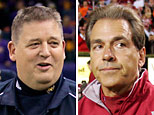
College recruiting champs
Which college football team fared the best on Signing Day? » Find out
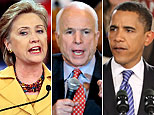
Dividing the nation
Analysts believe the major candidates have split their parties and the country. » The dilemma WSJ.com
- Who has bragging rights? Slate.com
- Media blows it HuffingtonPost.com
Candidates gallery
 former senator and former Ambassador Carol Moseley Braun of Illinois
former senator and former Ambassador Carol Moseley Braun of Illinois
Retired General Wesley Clark of Arkansas

former Governor Howard Dean of Vermont

Senator John Edwards of North Carolina

Former U.S. House Minority Leader Dick Gephardt of Missouri
 Senator Bob Graham of Florida
Senator Bob Graham of Florida
Senator John Kerry of Massachusetts

Representative Dennis Kucinich of Ohio

Senator Joe Lieberman of Connecticut

Reverend Al Sharpton New York
United States Republican presidential candidates, 2008
This article lists both declared and potential Republican candidates for the President of the United States in the 2008 election.
In accordance with the 22nd Amendment, incumbent President George W. Bush will not be eligible for re-election in 2008, and Vice President Dick Cheney has not sought the nomination and will not run for President.[1] Since both are Republicans, the field is clear.
- 1 Delegate race count
- 2 Candidates with national campaigns
- 3 Other candidates
- 4 Withdrawn from seeking nomination
- 5 Declined to seek nomination
- 6 See also
- 7 References
- 8 External links
Other delegates yet to be assigned: 2,172
Total number of delegates: 2,380
Delegates required for nomination: 1,191
States already polled: 7 (Iowa, Wyoming, New Hampshire, Michigan, Nevada, South Carolina, Florida)
States yet to be polled: 43
Also to be polled: District of Columbia
Next State(s) in contest:
February 2nd, Maine, Republican closed caucus
February 5th, Super Tuesday, 21 states, 1069 delegates[2]

Mike Huckabee, former Governor of Arkansas
- See also: Political positions of Mike Huckabee
Mike Huckabee, born August 24, 1955, in Hope, Arkansas, served as Governor of Arkansas for over 10 years. Huckabee has announced he will seek the Presidency in the 2008 presidential election.[3] He has made several trips to important primary states, including a four-day trip to New Hampshire in August 2006. His campaign has been focused largely on Iowa for the Ames Straw Poll on August 11, 2007 He announced that he would be running in 2008 on NBC's Meet the Press television show with Tim Russert.[4] and has since made three appearances on Comedy Central's The Colbert Report, The Today Show on NBC and many appearances on CNN, Fox News Channel, and MSNBC regarding the 2008 presidential election. He was declared the victor of the January 3, 2008 Iowa caucus.[5]

Alan Keyes, former Ambassador to the Economic and Social Council of the United Nations
Alan Keyes, born August 7, 1950, in New York City, filed a Statement of Candidacy with the Federal Elections Commission on September 14, 2007.[6] He served as Ambassador to the Economic and Social Council of the United Nations under President Ronald Reagan, and served as Assistant Secretary of State for International Organization Affairs from 1985 to 1987. He is currently on the ballot in 25 states.[7] He participated in Republican debates on September 17[8] and December 12.[9] If elected, Keyes would be the first African-American to hold the office of president, as well as the second Roman Catholic after John F. Kennedy. Keyes supports an amendment against gay marraige.[10] Keyes stated he would not have gone to war in Iraq[11], but also said that the war was justified[12] and defended President Bush's decision in on of his 2004 debates with Obama[13]. He has stated that troops should stay in Iraq [14] but also said that he would have turned over operations to the UN.[15] However, Keyes has stated that even while he was an Ambassador there, he was not a supporter of the United Nations[16].
- See also: Political positions of John McCain
John McCain, born August 29, 1936, in the U.S.-controlled Panama Canal Zone, Senator from Arizona. Often characterized as a Republican maverick in the Senate, he is well-known. In 2000, he failed in his attempt to deny George W. Bush the Republican nomination: McCain continued his ultimately unsuccessful campaign long after the other Republican candidates had united behind Bush.
McCain's bipartisan compromise on judicial nominations and his strong support of campaign finance reform have drawn the ire of many groups,[17] many of which have vowed to work against any McCain campaigns for the Republican nomination in 2008. However, he has a strong stance on many issues and economically falls more along the lines of traditional "fiscal conservatism." These factors, along with his commitment to the War on Terror (including Iraq) have boosted his popularity amongst conservatives since 2004, when he emphasized these traits while stumping for Republican candidates.
On November 15, 2006, McCain announced that he would form an exploratory committee.
On the Late Show with David Letterman on February 28, 2007, Sen. John McCain announced he will seek the GOP presidential nomination, and made a formal announcement on April 25, 2007.

Representative Ron Paul
(Campaign site
- See also: Political positions of Ron Paul
Ron Paul, born August 20, 1935, in Green Tree, Pennsylvania, is a long time U.S. Representative from Texas with a strong constitutionalist and libertarian voting record. Nicknamed "Dr. No" for his opposition to tax increases and spending bills, Paul has chastened his fellow Republicans for abandoning the party's commitment to limited government, and for helping to create an unsustainable national debt now in the trillions of dollars.[18] Paul seeks to "reinstate the Constitution and restore the Republic."[19]
On January 11, 2007, Paul filed papers to form an exploratory committee for the 2008 presidential race.[20][21] He formally declared his candidacy 12 March 2007 as a guest on Washington Journal on C-SPAN.[22][23] Paul ran for President as a Libertarian nearly two decades ago. He is opposed to the Iraq War and had the distinction of being one of only seven Republican congressmen who voted against Iraq War authorization in October 2002. He has also opposed George W. Bush and the majority of Republican congressmen on many other issues, including the PATRIOT Act.
On February 20, 2007, Paul's exploratory committee posted on YouTube a formal video of him explaining his reason for running.[24]
Paul did well in Republican straw polls, has broken fundraising records, and has placed second in the Nevada ,Louisiana caucuses, and Maine Republican caucuses. Paul also received 10% in Iowa, 7% in New Hampshire, 6% in Michigan, under 4% in South Carolina, 3% in Florida and last in Wyoming.

Mitt Romney, former Governor of Massachusetts
- See also: Political positions of Mitt Romney
Mitt Romney, born March 12, 1947, in Michigan, is former Governor of Massachusetts; he did not seek a second term in November 2006. Romney has made numerous trips to primary states such as South Carolina, Michigan, and New Hampshire, during recent years. Romney is running on his record as co-founder of Bain Capital, the CEO of the 2002 Winter Olympics, and his record as Governor of Massachusetts. Although he ran as a moderate for the office of Governor of Massachusetts and during his failed Senate bid in 1994, he supported more conservative positions as his term progressed. Romney formed a presidential exploratory committee on January 3, 2007, the day he left the governor's office.[25]
On January 9, Romney raised $6.5 million in his first fundraiser, beating both Giuliani and McCain's fundraising efforts ($1 and $2 million respectively).
Romney has already received major endorsements, including that of former Speaker of the House, Dennis Hastert.
Romney officially announced his candidacy on February 13 at the Henry Ford Museum in Dearborn, Michigan.[26][27]
Other candidates
The following candidates have filed with the Federal Elections Commission (FEC).
- Jedidiah Kennedy Banks of York, Pennsylvania[citation needed]
- Daniel Barnett of Greenwood Village, Colorado[citation needed]
- Hugh Cort[28] of Mountain Brook, Alabama
- Jerry Ralph Curry of Virginia[29]
- Dewey Broughman of Buchanan, Virginia[citation needed]
- Susan Ducey[30]
- Cap Fendig[31] of St. Simons, Georgia (dropped out on January 22, 2008)[32]
- David Furniss[33]
- Dan Gilbert[34]
- Mildred Howard of New Richmond, Ohio[citation needed]
- Dr. Mark Klein[35]
- William Koenig[36]
- Stephen Macmillan of Forestdale, Massachusetts[citation needed]
- Yehenna Joan Mary Malone of Washington, D.C.[citation needed]
- James Mitchell[37]
- Jesus Muhammed of Dearborn, Michigan[citation needed]
- Launeil Sanders[38]
- Dr. Jack Shepard[39]
- Michael Charles Smith[40]
- Richard Michael Smith[41]
- Keith Sprankle[42]
- Corrogan Vaughn[43]
- Virgil Wiles of Florissant, Missouri[citation needed]
- Vermin Supreme[44]
- Vernon Wuensche[45]
- Others [46]
Withdrawn from seeking nomination
Candidates who have withdrawn their candidacies
Rudy Giuliani, former mayor of New York City (Campaign site
- See also: Political positions of Rudy Giuliani
Rudy Giuliani, born May 28, 1944, in New York, former mayor of New York City. Giuliani said on October 2, 2005, that he would look at the possibility of running for President. On November 13, 2006, he announced that he was forming an exploratory committee. He has led several state and nationwide polls for the Republican nomination and the general election, and has been mentioned by many media sources as a possible candidate since the 9/11 attacks and a speech to the 2004 Republican Convention.[47] (See polls below) Giuliani is pro-choice, and supports a type of civil union between same sex couples and agrees for legal and medical reasons that same sex relationships should get the same rights under the law. He also believes in strong restrictions on the right to keep and bear arms and agrees with harsh punishment for illegal weapons or non permitted weapons. While opinions differ, some think that these positions could help him, should he secure the nomination, in the general election; others question whether the Republican base would support a nominee with Giuliani's social positions. On February 5, 2007, Giuliani unofficially entered the race for the 2008 U.S. presidential election by filing a "statement of candidacy" with the Federal Election Commission, but legally keeping him at the same level as he was while running an exploratory committee.[48] On February 15, Giuliani officially announced that he was running on CNN's Larry King Live show.[49] If elected, Giuliani would be the first Italian-American to hold the office of president, as well as the second Roman Catholic after John F. Kennedy. Giuliani finished third in the Florida primary on January 29, 2008. The next day he withdrew and endorsed John McCain.[50]
Sam Brownback, born September 12, 1956, in Kansas, senior Senator from that state. In April 2005, the Associated Press reported that Brownback, who is little known outside his home state, "is using a network of social conservatives and Christian activists to raise his profile" in such battleground states as Iowa and New Hampshire. He is well known for his social and fiscal conservative record, such as opposing abortion and instituting a flat tax alternative to the current IRS Code. He was also instrumental in Congress' bestowing the Congressional Medal upon Mother Teresa. In his own words, "The core of my being is to rebuild the family and renew the culture." On December 4, 2006, Brownback announced that he would form an exploratory committee.[51] On January 20, 2007, Brownback officially announced his candidacy.[52] Of his campaign, Brownback has said, "I'm a son of a farmer from Kansas ... I still think anybody can be president. I don't think you have to show up with $100 million to do it. ... I'm the tortoise in the race. And I don't like how the race starts; I like how it ends up."[53] Brownback was one of three who raised his hand in the May 3, 2007, Republican candidates debate when asked "Is there anybody on the stage who does not believe in evolution?". [54] Brownback officially withdrew from the presidential race on October 19, 2007, and has since then endorsed John McCain. [55]

Jim Gilmore former Governor of Virginia
A Draft Jim Gilmore for President group was formed in August of 2006, encouraging former Virginia Governor Jim Gilmore to run for president after he was seen traveling to the presidential primary states. In November 2006, Gilmore told ABC News that a 2008 presidential run was one of several possibilities he is considering.[56] On December 19, 2006, Gilmore announced he was forming an exploratory committee for a presidential candidacy.[57] Gilmore announced on December 20, 2006, that he would launch his exploratory committee on January 2, 2007.[58] Perhaps hoping to mirror the surprising 2004 campaign of Democrat Howard Dean, another former governor with little national recognition when he entered the race, Gilmore declared that he represents "the Republican wing of the Republican Party" echoing the popular Dean quotation. Gilmore declared his candidacy from the Des Moines, Iowa GOP headquarters on April 26, 2007. Gilmore, however, raised a mere $380,000 in the first half of 2007, which he cited as a reason why he withdrew from the contest on July 14, 2007. [42]

Representative Duncan Hunter
- See also: Political positions of Duncan Hunter
Duncan Hunter, born May 31, 1948, in Riverside, California, U.S. Representative from that state and former Chairman of the House Armed Services Committee. Hunter formally announced his presidential candidacy in Spartanburg, South Carolina, on January 25, 2007. He is known for his strong stance against illegal immigration, and opposition to free trade agreements like North American Free Trade Agreement and the World Trade Organization.[59] He introduced H.R. 552, The Right to Life Act, "to implement equal protection . . . for the right to life of each born and preborn human person"; it has over 100 co-sponsors. Hunter withdrew from the race on January 19, 2008 after a poor showing in the Nevada Republican caucuses.[60] He has since then endorsed Mike Huckabee.[61]
Main article: Tom Tancredo presidential campaign, 2008
Tom Tancredo, born December 20, 1945, in Colorado, U.S. Representative from that state and leading advocate for more restrictive immigration policies. On April 2, 2007, Rep. Tancredo announced his official candidacy on Iowa talk radio station 1040 WHO. Tancredo has a dedicated grassroots following among paleoconservatives. He has visited early Presidential primary states such as New Hampshire, Michigan and Iowa to begin building popular support and has polled favorably amongst grassroots Republicans. Tancredo announced on January 16, 2007, that he was forming an exploratory committee.[62] Tancredo was one of three who raised his hand in the May 3, 2007, Republican candidates debate when asked "Is there anybody on the stage who does not believe in evolution?"."[63] On December 20, 2007, Tancredo withdrew from the race and endorsed Mitt Romney. [64]

Fred Thompson, former Senator of Tennessee
- See also: Political positions of Fred Thompson
Fred Dalton Thompson, born August 19, 1942, former Senator from Tennessee and actor, best known for playing D.A. Arthur Branch on Law & Order. There was speculation that Thompson would run for Governor of Tennessee in 2006, but he declined to run against the popular Governor Phil Bredesen. On March 11, 2007, Thompson said "I'm giving some thought to it. Going to leave the door open. A lot of people think it's late already. I don't really think it is, although the rules of the game have changed somewhat. ... I think people are somewhat disillusioned. I think a lot of people are cynical out there. I think they're looking for something different." [65] On June 1, Thompson announced he had established a preliminary campaign committee, thus taking his first formal step toward an official presidential bid. [66]On September 5, he officially entered the presidential race.[67] On January 22, 2008 he dropped out of the race.[68]

Tommy Thompson, former Governor of Wisconsin
Tommy Thompson, born November 19, 1941, in Elroy, Wisconsin, is the former four-term Governor of Wisconsin and was Secretary of Health and Human Services under President George W. Bush from 2001 to 2005. He recently announced interest in the 2008 nomination and, on December 15, 2006, announced that he had formed an exploratory committee.[69] He officially announced his candidacy on April 1, 2007.[70] After a poor showing in the August 11 Iowa Straw Poll, Tommy Thompson announced on the following day that he is withdrawing from the race, and has since endorsed Rudy Giuliani.
Declined to seek nomination
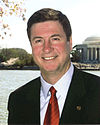
George Allen, former Senator
George Allen, was the frontrunner for the Republican nomination for the 2008 presidential election.[71], in a survey of 175 Washington insiders conducted by National Journal's "The Hotline" and released April 29, 2005.
Prior to his November loss to Jim Webb in the 2006 Virginia senatorial race, Allen had traveled a number of times to Iowa — the first state with a presidential caucus — and New Hampshire — the first state with a presidential primary). He had been widely assumed to be preparing a run for president.[72] On December 10, 2006, Allen gave an interview[73] in which he stated that he would not seek the 2008 nomination.

Jeb Bush, former Governor of Florida
Jeb Bush, former Governor of Florida; his family connections and history indicate that he may be next in line to continue the Bush family legacy, although his mother, former First Lady Barbara Bush, has stated that he will not seek the 2008 Republican nomination, and many analysts state that he would be a natural frontrunner for the Vice President slot on the Republican ticket. On January 27, 2007, as the keynote speaker at the National Review Institute's Conservative Summit in Washington, D.C., Bush denied rumors that he would run for President in 2008, but “when questioned did not rule out running as a vice presidential candidate.”[74]
Dick Cheney, current Vice President of the United States, has asserted his intent to not seek the 2008 nomination several times throughout the presidency of George W. Bush. In an interview on Face the Nation, Cheney said, "I've taken the Sherman statement. 'If nominated, I will not run, If elected, I won't serve,'"[75]

Bill Frist, former Senate Majority Leader
Former Senator from Tennessee and former Senate Majority Leader Bill Frist stated on November 29, 2006 that he does not intend to seek the nomination but wants to go back to practicing medicine.[76]

Newt Gingrich, former Speaker of the House
Newt Gingrich was the former Speaker of the U.S. House of Representatives and former U.S. Representative from Georgia. According to the Associated Press, "The former House speaker who led Republicans to power a decade ago said he soon will visit Iowa and New Hampshire to promote his book, try to influence public policy and keep his political options alive." The AP reported him as saying "Anything seems possible," including a White House race. Gingrich first explicitly suggested he may run in 2008 on October 13, 2005, saying "There are circumstances where I will run", elaborating that such circumstances would be if no other candidate champions the major platform ideas that Gingrich advocates. However, he has since then said that the odds of his becoming a candidate are 4-to-1 against.[77] However, on September 20, Gingrich said that he would consider running for president if his supporters could raise $30 million in pledges by the end of October.[78] On September 29, 2007, Gingrich's spokesman Rick Tyler announced that Gingrich would not run for president.[79]
Chuck Hagel is the senior US Senator from Nebraska; however, he swore a pledge to only serve two terms, and thus will not be running for re-election to the Senate in 2008. According to NPR, Hagel was considering a Presidential campaign in 2005. [80] There were also a number of Draft Hagel blogs and groups online.[81] On March 12, 2007, Hagel made a statement on his political future, in which he kept open the possibility to enter the presidential race later in the year.[82] Despite being a fairly conservative Republican, he would have had to deal with elements of the party faithful due to his criticism of President Bush over the war in Iraq. It is widely thought that Senator Hagel would have had trouble emerging from the shadow of John McCain, as they are both outspoken Vietnam veterans. On September 10, 2007, Hagel announced that he would not seek the nomination.[83]

Secretary of State Condoleezza Rice
Condoleezza Rice, currently the Secretary of State, said in March 2005 on Meet the Press[84], and elsewhere, that she doesn't intend to run for President, but can't rule it out. In an August 8-10, 2005, Republican primary poll in Iowa, Rice came in first with 30 percent, beating McCain and Giuliani, who each got about 15 percent. In October 2005, Condi vs. Hillary, a book by political commentator Dick Morris, discussing Rice as the Republican candidate, was published.
Mark Sanford, Governor of South Carolina; popular with fiscal conservatives, but has said he does not intend to run. Sanford professes to be a firm supporter of limited government, and many pundits have described his views as being libertarian in nature. There are several Internet-based groups trying to convince him to run for President in 2008. However, on November 7, 2006, he said that his gubernatorial race at that point would be his last campaign, win or lose.[85]
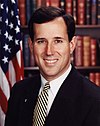
Rick Santorum, former Senator
Rick Santorum, former U.S. Senator from Pennsylvania; A number of polls had mentioned him as a potential Republican candidate. Once he lost his seat to his Democratic opponent, Pennsylvania treasurer Bob Casey, Jr., a run for the Presidency became decidedly less likely and on November 17, 2006, in regard to a Presidential bid, he stated "Absolutely, positively not. Absolutely not, my wife would throw me out of the house if I do anything in '08."[86]
- United States Republican Party presidential primaries, 2008
- Opinion polling for the United States presidential election, 2008
- United States presidential election, 2008
- United States Democratic presidential candidates, 2008
- United States third party presidential candidates, 2008
United States Democratic presidential candidates, 2008
This article contains lists of people associated with the 2008 Democratic Party Primaries for the 2008 United States Presidential Election.Active candidates with national campaigns
These have filed (or announced plans to file) with the Federal Elections Commission (FEC).
Senator Hillary Rodham Clinton
(Campaign site)
Hillary Rodham Clinton, born October 26, 1947, in Illinois, U.S. Senator from New York and former First Lady of the United States. Clinton announced the formation of her exploratory committee on January 20, 2007, with a post on her website.[1] She has delivered several speeches intended to reach out to moderates, according to analysts. She has also been holding fundraising meetings, including meeting with women from Massachusetts, a key constituency of potential rival and 2004 nominee John Kerry; however, these activities are consistent with the lead up to a campaign for re-election to her Senate seat in 2006. If elected, Clinton would be the first female president. Clinton announced on January 20, 2007, that she will run in 2008 (the same day she announced the formation of an exploratory committee). She has filed the official paperwork for an exploratory committee.[2] She placed first in the New Hampshire primary on January 8, 2008 and placed first in the Nevada caucuses on January 19 but fell one delegate short of Barack Obama. She placed first in the Florida primary on January 29, 2008, but was awarded no delegates, due to a prior ruling of the party unseating the state representatives because of the early date.

Former Senator Mike Gravel
(Campaign site)
- See also: Political positions of Mike Gravel
Mike Gravel, born May 13, 1930, in Springfield, Massachusetts. U.S. Senator from Alaska from 1969 to 1981 and an active candidate for Vice President in 1972. He is most known for playing a key role in ending the draft during the Vietnam War through the release of the Pentagon Papers and through staging a one-man filibuster for 5 months. He is also notable for advocating a guaranteed annual income, which he termed a "citizen's wage," of US$5,000 per person, regardless of whether the person worked. On April 13, 2006, Gravel announced his candidacy for the Democratic nomination. His policy announcements to date include support for direct democracy, FairTax, and withdrawal from Iraq. Mike Gravel filed with the FEC in April according to various news sources.[3][4] The FEC's site has listed his reports since July.[5] MSNBC incorrectly reported that Gravel had dropped out of the race on January 3, 2008 after a poor performance in the Iowa caucuses. His website confirmed that he is still in the race.
- Alaska State Representative: 1962–1966 (Speaker: 1965–1966)
- U.S. Senator from Alaska: 1969–1981
 Senator Barack Obama
Senator Barack Obama(Campaign site
- See also: Political positions of Barack Obama
Barack Obama, born August 4, 1961, in Honolulu, Hawaii, U.S. Senator from Illinois. A "draft Obama" movement began with his well-received 2004 Democratic National Convention keynote address. Obama was the featured speaker at Iowa Senator Tom Harkin's annual steak fry, a political event favored by presidential hopefuls in the lead-up to the Iowa caucus. He was endorsed by talk show host Oprah Winfrey in 2006.[6] Various recent opinion polls have seen Obama trailing only Hillary Clinton in several polls.[7] If elected, he would become the first African-American President of the United States. Obama announced on February 10, 2007, that he will run in 2008. He has filed the official paperwork.[8] Obama placed first in the January 3, 2008 Iowa caucuses, followed by Edwards and Clinton. He has also placed first in the January 26, 2008 South Carolina primary.
- Illinois State Senator: 1996–2004
- U.S. Senator from Illinois: 2005–Present
Other candidates
The following people have filed with the Federal Elections Commission (FEC):
- Roland Aranjo[17]
- Willie Carter[18]
- Randy Crow[19]
- Phil Epstein[20]
- Michael Forrester[21]
- Wrendo Goodwin of Parksley, Virginia[citation needed]
- Henry Hewes[22]
- D.R. Hunter[23]
- Keith Judd of Beaumont, Texas[citation needed]
- Karl Krueger[24]
- Frank Lynch[25]
- Grover Cleveland Mullins[26]
- Larry Reed[27]
- Lee L. Mercer Jr.[28]
Withdrawn from seeking nomination

Senator Joe Biden
- See also: Political positions of Joe Biden
Joe Biden, born November 16, 1942, in Scranton, Pennsylvania, U.S. Senator from Delaware and candidate for the Democratic presidential nomination in 1988, although he ceased active campaigning in 1987, before the first primaries. Biden first hinted that he might run in 2008 in a December 8, 2004, radio interview with host Don Imus, saying: "I'm going to proceed as if I'm going to run." Biden had repeatedly stated his intention to run, and did so as early as 21 March 2006. Biden's Federal Leadership PAC is "Unite Our States", which tracks Biden's public appearances and policy positions. On 7 January 2007, when asked by Tim Russert on Meet the Press, "Are you running for President?" he responded, "I am running for President." He also said he planned to create an exploratory committee by the end of the month.[29][30][31] On January 31, 2007, he officially signed the papers with the FEC to run for president. He dropped out of the race on January 3, 2008 after a poor performance in the Iowa caucus.
- U.S. Senator from Delaware: 1973–Present

Senator Chris Dodd
- See also: Political positions of Chris Dodd
Christopher Dodd, was born May 27, 1944, in Willimantic, Connecticut and is a five-term U.S. Senator from that state. Dodd was reported to be a likely contender for the Democratic Vice President slot on John Kerry's ticket in 2004. In May 2006, Dodd said he has "decided to do all the things that are necessary to prepare to seek the presidency in 2008", including hiring staff, raising money and traveling around the country in the next few months to enlist support.[32] On Jan. 11, 2007, Dodd announced his Presidential candidacy on the "Imus in the Morning" radio show with Don Imus.[33] As a result of unpromising results in the Iowa Caucus on January 3, 2008, Dodd dropped out of the race for presidency.
- U.S. Representative from the Connecticut's 2nd congressional district: 1975–1981
- U.S. Senator from Connecticut: 1981–Present
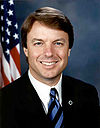 Former Senator John Edwards
Former Senator John Edwards(Campaign site
- See also: Political positions of John Edwards
John Edwards, born June 10, 1953 in South Carolina, is a former U.S. Senator from North Carolina. As a 2004 presidential candidate, Edwards was famed for his populist message in his "Two Americas" speech and also for his optimistic, positive attitude. This was evidenced by his refusal to attack his opponents. In the primaries, Sen. Edwards had strong come-from-behind showings in the crucial states of Iowa, Oklahoma, Virginia, Tennessee, Wisconsin, and Georgia. On February 5, 2005, Edwards spoke at the New Hampshire Democratic Party's fundraising dinner. On August 18, 2005, Edwards traveled to Waterloo, Iowa, to deliver an address to the Iowa AFL-CIO, a potential key supporter in the Iowa caucuses. On December 26, 2006, Edwards formally announced his candidacy.[34] On January 30, 2008, Edwards ended his bid for the Presidency[35]
- U.S. Senator from North Carolina: 1999–2005
- Director of the Center on Poverty, Work, and Opportunity at the University of North Carolina at Chapel Hill: 2005–2006
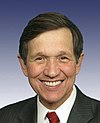
Representative Dennis Kucinich

Representative Dennis Kucinich
- See also: Political positions of Dennis Kucinich
Dennis Kucinich, born October 8, 1946, in Cleveland, Ohio. Ohio Congressman, former Mayor of Cleveland, and 2004 Democratic primary candidate. Dennis Kucinich is known by many as "The Peace Candidate", having received the 2003 Gandhi Peace Award. Kucinich opposed the war in Iraq and the Patriot Act. Under Kucinich's plan, United Nations peace-keepers would go to Iraq if the Iraqi citizens desire their presence. The Congressman re-introduced legislation to create a United States Department of Peace via HR 808 on February 5, 2007. He is currently campaigning to end the war in Iraq by cutting off funding, if such measures are necessary. He is in support of peaceful diplomatic relations with Iran, and all nations. Kucinich has received many awards praising his courage and work for peace.[36][37] On December 12, 2006, Kucinich announced his candidacy at an event at Cleveland's City Hall.[38] He withdrew from the race on January 25th, and turned his focus to his re-election for his congressional seat. [39]
- Mayor of Cleveland: 1978–1979
- U.S. Representative from Ohio's 10th congressional district: 1997–Present

Governor Bill Richardson (Campaign site
- See also: Political positions of Bill Richardson
Bill Richardson, born November 15, 1947, in Pasadena, California, Governor of New Mexico, former U.S. ambassador to the United Nations, Secretary of Energy and U.S. Representative. After reportedly informing party leaders in February 2005 of his intention to run for president, on December 7, 2006, Richardson said "I am running" during his response to a prospective question about the 2008 presidential election by Fox News, however he later retracted the decision and said he would make an official decision by January. On May 21, 2007, he officially declared his candidacy.[40] On January 9, 2008 he pulled out of the race.[41]
- U.S. Representative from the New Mexico's 3rd congressional district: 1983–1997
- United States Ambassador to the United Nations: 1997–1998
- United States Secretary of Energy: 1998–2001
- Governor of New Mexico: 2003–Present

Former Governor Tom Vilsack
Tom Vilsack, born December 13, 1950, in Pittsburgh, Pennsylvania, former Governor of Iowa, Chairman of the Democratic Leadership Council. Many suspected Vilsack was high on the list of potential running mates for John Kerry in the 2004 Presidential Election. In 2005, Vilsack established Heartland PAC,[42] a political action committee aimed at electing Democratic Governors and other statewide candidates. Unlike the PACs of potential candidates, Heartland PAC is not a federal PAC and can not contribute to federal candidates. He filed papers with the Federal Elections Commission (FEC) to run for President on November 9, 2006.[43] He dropped out of the race on 23 February 2007 citing fundraising woes. He has since given his support to Hillary Rodham Clinton.[44][45]
- Governor of Iowa: 1999-2007
Declined to seek nomination
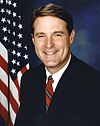
Senator Evan Bayh
Evan Bayh, born December 26, 1955, Indiana, former two-term Governor and currently a second-term U.S. Senator from that state. In February 2005, Bayh renamed his Federal Leadership PAC the All America PAC and hired a new veteran staff with experience on the 2004 campaigns of John Kerry and Wesley Clark for President and Tom Daschle for senate. Although the "Friends of Evan Bayh" draft committee filed papers with the FEC to form a presidential exploratory committee on December 5, 2006, he announced on December 16, 2006 that he would not seek the Democratic nomination for President, and since then has endorsed Senator Hillary Clinton.[46]
- U.S. Senator from Indiana: 1999-Present
- Governor of Indiana: 1989-1997
- Indiana Secretary of State: 1987-1989

General Wesley Clark (Ret.)
Wesley Clark, born December 23, 1944, in Illinois, from Arkansas, a Vietnam war veteran, a retired United States Army four-star general and former Supreme Allied Commander of NATO. He graduated first in his class from West Point. Clark is traveling widely through his Federal Leadership PAC WesPAC,[47] and is a commentator on MSNBC, while grassroots campaigns for Clark have become active on the internet.[48] Clark was a 2004 Presidential candidate as well, narrowly winning the Oklahoma primary. During a January 17, 2007, speech given to a local UAW group in Alabama and posted on YouTube, Clark stated "when I run, I'll be the national security candidate." [49] He endorsed Senator Hillary Clinton on September 15, 2007, seemingly ruling out a future run, though making him a frontrunner to be Senator Clinton's running-mate, should she win the Democratic nomination.
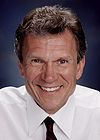
Tom Daschle, former Senate Majority Leader
Tom Daschle, born December 9, 1947, in South Dakota, former U.S. Senator from that state. He set up a new political action committee and planned a Jefferson-Jackson Day speech in the politically pivotal state of Iowa. Daschle has transferred $500,000 into the new Federal Leadership PAC, New Leadership for America.[50] In July 2005, Daschle said he was not planning a rematch against his successor John Thune in 2010, and he told the Sioux Falls Argus Leader newspaper that he was seriously considering a run and would not "rule out the possibility of an official announcement in the near future." However, on December 2, 2006, Daschle announced he would not run for President in 2008, and has since thrown his support behind Barack Obama's campaign.[51]
- U.S. Senator from South Dakota: 1987-2005 (Senate Minority Leader: 1995-2001 & 2003-2005, Majority Leader: 2001-2003)
- South Dakota's At-Large congressional district: 1979-1987

Howard Dean, former Governor of Vermont
Howard Dean, born November 17, 1947, in New York, former Governor of Vermont. Howard Dean is the current DNC Chairman, and was a candidate for the nomination in 2004. Dean said if he won the DNC Chairmanship he would not run for president and, since he won, has often repeated this.[52]
- Governor of Vermont: 1991-2003

Senator Russ Feingold
Russ Feingold, born March 2, 1953, in Wisconsin, U.S. Senator from that state. Announced to a meeting of the Tiger Bay Club of Volusia County, Florida, in January 2005 that he was considering a run for the nomination, and would decide after "going around the country" to campaign for fellow Democrats running for other offices.[53] His Federal Leadership PAC is the Progressive Patriots Fund,[54] which financed his travels around the country.[55] In early March 2005, his Senate campaign registered the domain name for the website www.russfeingold08.com as well as the .org and .net versions.[56][57][58] Later that month, he took a listening trip to Alabama.[59] In early April 2005, Feingold announced that he would be divorcing his second wife, a move which some analysts believe could diminish his chances of winning the presidential nomination. On August 17, 2005, Feingold became the first U.S. Senator to publicly support a firm date for withdrawal from the Iraq War,[60] suggesting December 31, 2006, as a reasonable date. Although Feingold's stance was generally criticized by other Democratic senators, including Biden and Clinton, his support in nonscientific internet polls of party activists jumped. In December 2005, when he led the Senate campaign against the renewal of the Patriot Act his support among party activists further intensified. Following the overwhelming resonance for his anti-war and bi-partisan rule of law positions in the 2006 Congressional elections, Feingold commented that the legislative victory "pushes me in both directions," and "he could make a decision on a presidential run before the end of the year".[61] However, on November 12, 2006, Feingold ruled out a 2008 presidential candidacy,[55] but has stated he is willing to consider an offer from the eventual nominee for the vice presidency.[62] Feingold has stated that his first choice for president in 2008 would be someone who voted against the war in Iraq, and failing that, his second choice would be someone who wasn't in Congress but spoke out against the war at the time. He also said he would "be happy" if Barack Obama or Al Gore ran, but stated he was not offering an endorsement.[63]
- U.S. Senator from Wisconsin: 1993-Present

Al Gore, former Vice President of the United States
Al Gore, born in Washington, D.C., is the former U.S. Vice President, and was the 2000 Democratic nominee, winning the popular vote. Gore is not a declared candidate in the 2008 presidential election. However, he has not rejected the possibility of future involvement in politics.[64] The prospect of a Gore candidacy was thus a topic of public discussion and speculation.[65][66] There were also grassroots draft campaigns. A grassroots group in New Hampshire considered a write-in campaign for the New Hampshire primary on 8 January 2008. [67] The campaign was halted, however. [68] Previous grassroot groups in California [69] and New York[70] attempted to convince him to run. There were also draft campaigns via websites.[71][72][73][74][75]
The release of An Inconvenient Truth in 2006 increased Gore's popularity among progressives.[76] After it was nominated for an academy award, Donna Brazile, Gore's campaign chairwoman from the 2000 campaign stated during a speech on January 31, 2007, at Moravian College in Bethlehem, Pennsylvania that, "Wait till Oscar night, I tell people: 'I'm dating. I haven't fallen in love yet. On Oscar night, if Al Gore has slimmed down 25 or 30 pounds, Lord knows.'"[77] The meaning of these remarks became clearer when on award night, while in attendance and acting as a presenter for an award, Gore began a speech that seemed to be leading up to an announcement that he would run for president. However, background music drowned him out and he was escorted offstage, implying it was a rehearsed gag.[78]
A nationwide Gallup poll of 485 Democrats and Democratic leaners in mid-November 2007 showed Gore receiving 17% of the votes in a hypothetical Democratic primary, second to Hillary Clinton, tied with Barack Obama, and ahead of John Edwards. A previous 29 June 2007 article in the The Guardian cited a poll conducted "in New Hampshire by 7News and Suffolk University" that found that if Gore "were to seek the Democratic nomination, 29% of Mrs. Clinton's backers would switch their support to him [...] when defections from other candidates are factored in, the man who controversially lost to Mr. Bush in the 2000 election takes command of the field, with 32% support."[79]An even earlier April 2007 Quinnipiac University poll of 504 registered Democrats in New Jersey showed Gore receiving 12% of the votes in a hypothetical Democratic primary, in third place behind Hillary Clinton and Barack Obama.[80] However, all of the polls which indicated that Al Gore would not be the leading Democratic candidate were all conducted before his Nobel Prize. The US has never had a presidential candidate who has already won a Nobel Prize. While he never officially said he was not going to seek nomination, it is now impossible for him to because of the deadline.
- Vice-President of the United States: 1993-2001
- U.S. Senator from Tennessee: 1985-1993
- U.S. Representative from Tennessee's 6th congressional district: 1983-1985
- U.S. Representative from Tennessee's 4th congressional district: 1977-1983

Senator John Kerry
John Kerry, born December 11, 1943, in Denver, Colorado, is the U.S. Senator from Massachusetts, and the 2004 Democratic presidential nominee. On March 1, 2005, Kerry created a new Federal Leadership PAC named Keeping America's Promise.[81] Dan Payne, a Democratic strategist, told the Washington Post that "This is the kind of thing he has to do" in order to run for president again in 2008.[82] Through Keeping America's Promise, Kerry boasts to have raised or given away over $14 million to nearly 300 progressive candidates, committees or causes.[83] Kerry told CNN, with respect to a run in 2008, "it's crazy to be thinking about it now" but went on to say that "I'll make my judgment when the time comes and I don't care what history says."[84] However, there was a controversy on October 30, 2006, over a speech made by Kerry at Pasadena City College. Future implications of his comments are still unclear, however Kerry himself claimed the incident will have little bearing on 2008 and that he will make a decision in early 2007.[85] On January 24, 2007, Kerry announced that he would not seek the Democratic nomination for the presidency in 2008.[86] Kerry and his JohnKerry.com e-mail list was also a supporter of Al Gore's recent house parties across the United States to spread information about global warming. In a letter e-mailed from JohnKerry.com, Kerry stated: "When strong leaders like Al Gore step forward to educate and organize people around vitally important issues, they deserve our full support."[87] Since, he has endorsed Senator Barack Obama.
- U.S. Senator from Massachusetts: 1985-Present
- Lieutenant Governor of Massachusetts: 1983-1985

Al Sharpton
Al Sharpton, of New York, Pentecostal minister, civil rights activist, former candidate for mayor of New York and for the Democratic nomination for U.S. Senator from New York, and candidate for the 2004 nomination. When asked about 2008, he replied, "Don't get Hillary mad at me."[88] He was one of the first candidates to enter the 2004 race, but thus far he has said nothing more about 2008. His 2004 campaign was not a great success. He never got more than 10% of the vote in any state, although he did get 20% in the District of Columbia.[89] There are still unresolved campaign-finance issues left over from that campaign. In January 2007, when asked if he was considering running in 2008, Sharpton said "I don't hear any reason not to," adding, "we'll see over the next couple of months." [90]
On April 2, 2007, Sharpton announced that he won't get into the 2008 presidential race this time. "I am not going to run." [4]
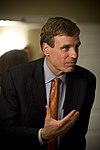
Mark Warner, former Governor of Virginia
Mark Warner, born December 15, 1954, former Governor of Virginia. As a successful Governor from a "red state" (barred from serving consecutive terms by state law) and popular within the party, it was highly anticipated that Warner would mount a Presidential bid. While it was ruled out by Warner himself in October[91], news that he was considering a bid was confirmed by colleague Dan Conley in December[92]. With Governor Warner's fund-raising capabilities and his potential as a vice presidential candidate, it was possible that Warner would still play a significant role in the campaign, until he became a candidate for the U.S. Senate.
- Governor of Virginia: 2002-2006
Actual
pledged delegates
(67 of 137 total)
Delegate statistics:
- Total pledged delegates assigned: 92
- Total unpledged delegates, and pledged delegates yet to be assigned: 3957
- Total number of delegates: 4049 (796 unpledged "superdelegates" and 3,253 pledged elected delegates)
- Delegates required for nomination: 2025
- States already polled: 4 (Iowa, New Hampshire, Michigan, Nevada, South Carolina, Florida)
- States yet to be polled: 46
- Other electorates to be polled: District of Columbia, American Samoa, Democrats abroad, Guam, US Virgin Islands[93]
- Opinion polling for the United States presidential election, 2008
- United States presidential election, 2008
- United States Republican presidential candidates, 2008
- United States third party presidential candidates, 2008













